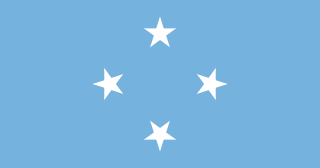Related Research Articles
Religion in Trinidad and Tobago, which is a multi-religious country, is classifiable as follows:
Freedom of religion in Colombia is enforced by the State and well tolerated in the Colombian culture. The Republic of Colombia has an area of 439,735 square miles and its population is estimated at 46 million.

Christianity is the largest religion in Seychelles, with Roman Catholicism being its largest denomination.

Christianity is the most widely professed religion in the Dominican Republic. Historically, Catholicism dominated the religious practices of the country, and as the official religion of the state it receives financial support from the government. About 60% of Dominicans identify themselves as Catholic.
Christianity is the most widely professed religion in Cuba, with Catholicism being its largest denomination. A significant share of the Cuban population is either non-religious or practices folk religions.
The population of Angola is more than 92% Christian as of 2023.
Protestants composed less than 1% of the population of Tajikistan in 2020. There is a Lutheran congregation in Dushanbe. There are about 3,000 evangelicals, who mainly are of Russian origin. The Constitution provides for religious freedom. There are Methodist and Seventh-day Adventist congregations in Tajikistan. Many Christians are from South Asia. According to the European Baptist Federation, government officials view the nation's Christians in the same light as militant Muslims.

Panama is a predominantly Catholic country.
Protestants in the Dominican Republic represent a sizeable minority of the population.

Christianity is the largest religion in Benin, with substantial populations of Muslims and adherents of traditional faiths. According to the most recent 2020 estimate, the population of Benin is 52.2% Christian, 24.6% Muslim, 17.9% traditionalist and 5.3% follows other faiths or has no religion.

Christianity is the most widely professed religion in Zimbabwe, with Protestantism being its largest denomination.

Christianity is the largest religion in Mozambique, with substantial minorities of the adherents of traditional faiths and Islam.

Christianity is the predominant religion in the Federated States of Micronesia and represents an integral part of the nation's identity.

Christianity is the most widely professed religion in Tanzania, but in the island of Zanzibar most of the population is Muslim.

Christianity is the most widely professed religion in Croatia, representing 87.4% of the total population. A large majority of the Croatian population declare themselves to be members of the Catholic Church.

Haiti is a majority Christian country. For much of its history and up to the present day, Haiti has been prevailingly a Christian country, primarily Catholic, although in practice often profoundly modified and influenced through syncretism. A common syncretic religion is Vodou, which combined the Yoruba religion of enslaved Africans with Catholicism and some Native American strands; it shows similarities, and shares many deity-saints, with Cuban Santería and Brazilian Candomblé. The constitution of Haiti establishes the freedom of religion and does not establish a state religion, although the Catholic Church receives some preferential treatment.

Haiti is a majority Christian country. Figures in 2020 suggest that 93% of the population belong to a Christian denomination.

The most common religion in Dominica is Christianity, with a majority of practitioners identifying as Catholic. Various minority religious groups are also present on the island.

Protestantism in Italy comprises a minority of the country's religious population.
A 2020 Pew Forum survey estimates that approximately 63% of the population of Tanzania identifies as Christian, 34% as Muslim, and 5% practitioners of other religions. Most Christians are Catholics and Lutherans, although there are also Anglicans, Pentecostals and other groups.
References
- ↑ Digital Chicago History website
- ↑ The World Factbook
- ↑ "US State Dept 2021 report".
- ↑ World Religion Database at the ARDA website, retrieved 2023-08-03
- ↑ US State Dept 2022 report
- ↑ Rey, Terry; Stepick, Alex (2013-08-19). Crossing the Water and Keeping the Faith: Haitian Religion in Miami. NYU Press. ISBN 9781479820771.